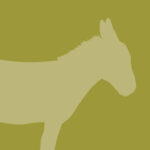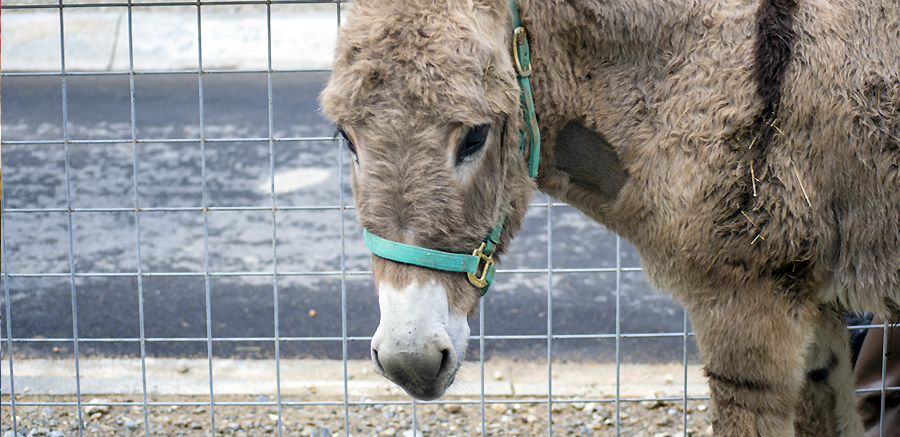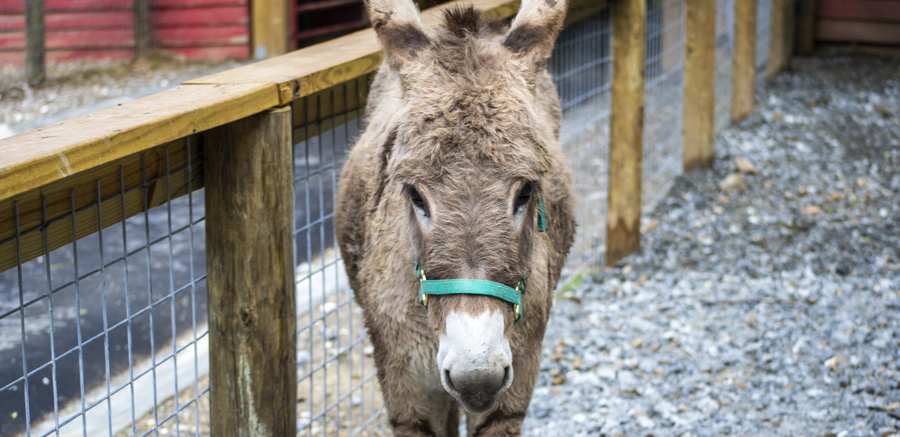
MINIATURE DONKEY
Donkeys are intelligent, social, hardy animals. They have been domesticated for their milk, strength, and companionship for more than 6,000 years.
PROFILE
Don-Kay came to Yellow River Wildlife with our mini-horse and sheep. Like many donkeys, he has a black cross on his back and stripes on his legs.
OVERVIEW
CONSERVATION STATUS
Not Listed
AVERAGE SIZE
Compared to a 6′ Man
AVERAGE WEIGHT
200 – 450 lbs
AVERAGE LIFESPAN
25 – 30 Years
DIET
Herbivore
REGIONS
Worldwide
While domesticated donkeys can be found around the world, miniature donkeys are native to the Mediterranean islands of Sicily and Sardinia.
APPEARANCE
Donkeys have a larger head and longer ears then a horse. They also have a cow-like tail. They have an erect mane and no bangs on their forehead area. Their coat ranges from flat, to curly, to long and shaggy, and in texture from smooth to wiry. The hair coat is shed out much later in the summer than that of the horse and serves to protect the donkey from the weather and flies. They are typically grayish to tan in color. Other coat colors such as brown, black, white, or spotted, are less common. Almost all donkeys have a “cross” on their backs. A legend explains that Jesus rewarded the donkey for his loyalty when he carried Him to Jerusalem and stayed with Him at the crucifixion.


CHARACTERISTICS
Unlike many other miniature breeds (such as toy poodles), the miniature donkey is not a bred-down version of a larger donkey. Their small size is natural. Miniature donkeys are not more than 36 inches tall, measured from the highest point of the withers to the ground. Donkeys’ small, cupped hooves allow them to be very agile in climbing steep slopes and rocky surfaces.
Donkeys can go for long periods of time without drinking. In fact, they can lose up to 30% of their body weight in water without negative consequences. They can regain all the water they lost after only 5 minutes of drinking. The tough digestive system of donkeys allows them to eat coarse vegetation that most animals would find inedible.
Because they generally live in areas where food is scarce, donkeys often spread out in order to find food and do not generally live in close proximity to other burros. They are able to communicate over long distances with their loud braying calls and large ears that are able to pick up even faint sounds.


